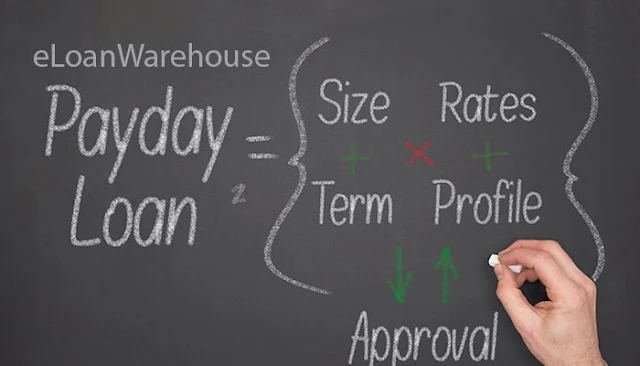Yield farming has emerged as a popular trend in decentralized finance (DeFi), allowing users to earn rewards by providing liquidity to various DeFi protocols.
At its core, yield farming involves lending or staking cryptocurrencies in exchange for rewards, typically in the form of additional tokens. This practice has gained traction due to its potential for high returns, but it also comes with its risks and considerations.
.jpg) |
| Yield Farming Explained, Understanding the Basics of DeFi Yield Generation: eAskme |
Explore DeFi and investing at btceer.com, an educational firm connecting investors and academic experts.
The Mechanics of Yield Farming:
To understand yield farming, it's essential to grasp the underlying mechanics. Yield farming typically provides liquidity to decentralized exchanges (DEXs) or lending platforms.
Users contribute their crypto assets to liquidity pools, which are used to facilitate trading on DEXs. In return, they receive liquidity provider (LP) tokens representing their pool share.
These tokens can then be staked or used in other protocols to earn rewards.
Automated market makers (AMMs) play a crucial role in yield farming by eliminating the need for traditional order books.
Instead, AMMs rely on algorithms to determine asset prices based on the ratio of assets in the liquidity pool. This automated process allows for continuous trading and incentivizes users to provide liquidity.
Types of Yield Farming Strategies
Several strategies yield farmers can employ to maximize their returns:
- Token Staking: This is the simplest form of yield farming, where users stake a single token to earn rewards. The rewards are typically paid out in the same or different token.
- Liquidity Provision: Users provide liquidity to a liquidity pool by depositing pairs of tokens. In return, They receive LP tokens representing their share of the pool. These LP tokens can then be staked to earn rewards.
- Yield Optimization: This strategy involves moving assets between different DeFi protocols to maximize returns. Users can use opportunities such as arbitrage and yield farming aggregators to optimize their yield.
- Leverage: Some yield farmers use borrowed funds to increase their exposure to yield farming opportunities. While this can amplify returns, it also increases the risk of liquidation.
Risks and Considerations
While yield farming can be lucrative, it also comes with significant risks.
One of the primary risks is impermanent loss, which occurs when the value of the tokens in a liquidity pool diverges from the value of the tokens outside the pool. This can result in a loss of funds for liquidity providers.
Intelligent contract vulnerabilities are another significant risk in yield farming.
Since most DeFi protocols are based on smart contracts, they are susceptible to bugs and exploits. Users need to conduct thorough research and only participate in well-audited protocols.
Market volatility is also a concern in yield farming, as the value of rewards can fluctuate significantly. Users must consider their risk tolerance and only invest what they can afford to lose.
Popular Yield Farming Protocols
Several DeFi protocols have gained popularity in the yield farming space:
- Uniswap: Uniswap is a decentralized exchange that allows users to swap ERC-20 tokens without needing an order book. Users can provide liquidity to Uniswap pools and earn fees in return.
- SushiSwap: SushiSwap is a Uniswap fork offering additional features such as yield farming and staking. Users can stake SUSHI tokens to earn rewards and participate in governance.
- Compound: Compound is a decentralized lending platform allowing users to borrow cryptocurrencies. Users can earn interest on deposits and borrow assets using their crypto holdings as collateral.
Yield Farming vs. Traditional Finance
Yield farming represents a significant departure from traditional finance, offering higher returns but also higher risks. In conventional finance, yields are typically lower, but investments are more stable.
Yield farming has democratized finance by allowing anyone with an internet connection to participate, whereas traditional finance often requires a minimum investment amount and access to specialized knowledge.
Future Trends and Outlook
The future of yield farming and DeFi is promising, but several challenges must be addressed.
Scalability remains a significant issue, as the current infrastructure of many DeFi protocols struggles to handle high transaction volumes.
Regulatory challenges are also a concern, as governments worldwide are beginning to pay closer attention to DeFi activities.
Despite these challenges, the potential impact of yield farming on the broader financial ecosystem is significant.
Yield farming has the potential to revolutionize finance by providing new avenues for capital formation and investment.
As the technology evolves, we'll likely see even more innovative uses of DeFi and yield farming.
Conclusion
In conclusion, yield farming offers an exciting opportunity for investors to earn high returns in the rapidly evolving world of DeFi.
However, users must understand the risks and complexities involved before diving in.
By conducting thorough research and staying informed, investors can maximize their chances of success in the yield farming space.
Share it with your friends and family.
Don't forget to join the eAskme newsletter to stay tuned with us.
Other handpicked guides for you;

.jpg)
.jpg)
.jpg)
.jpg)
.jpg)
.jpg)
.jpg)
.jpg)
-Full-Movie-Online-Review,-Rating,-Budget,-Star-cast,-OTT-release-and-FAQs,-Leaked-Online-on-Tamilrockers,-Download-Captain-Miller-min.jpg)











